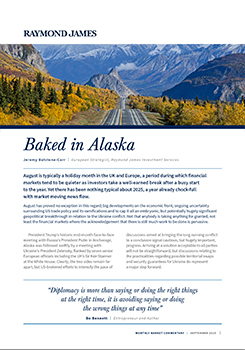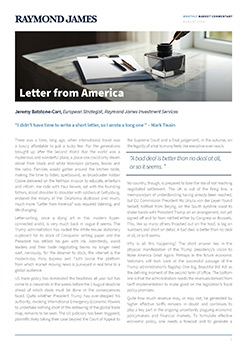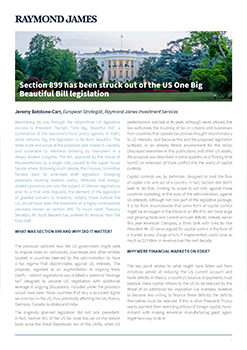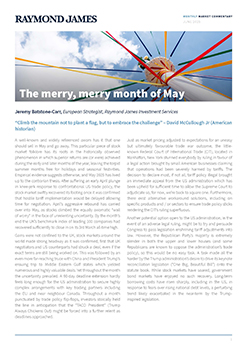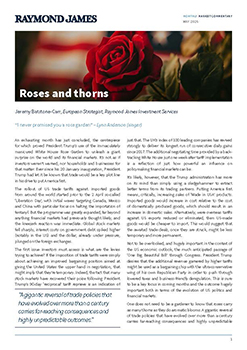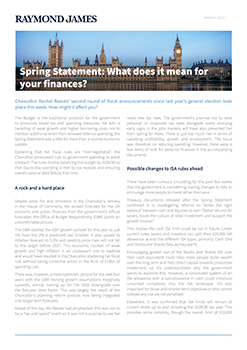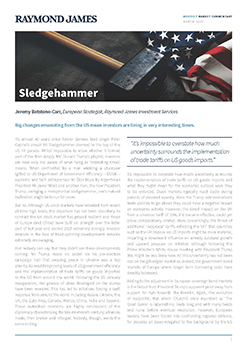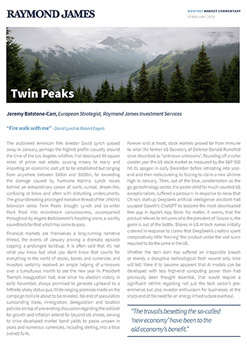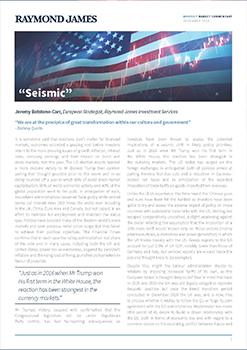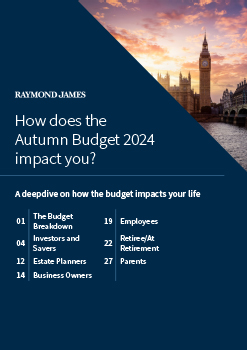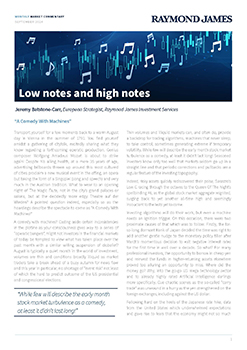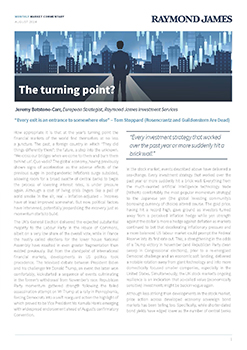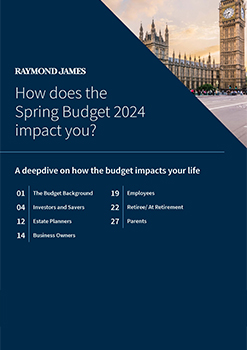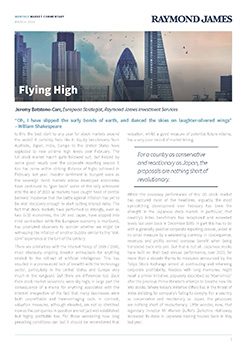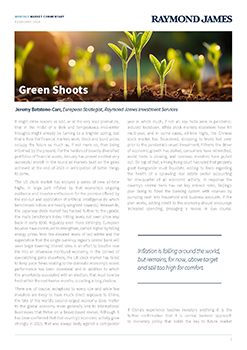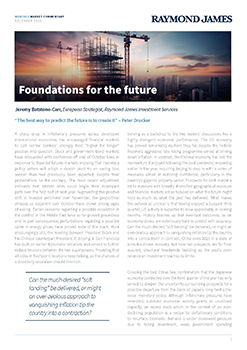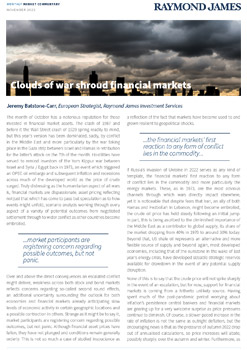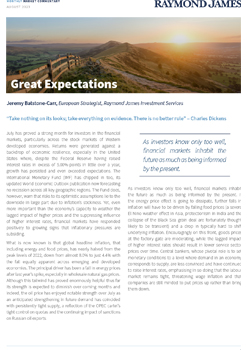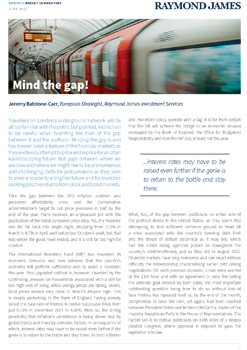August is typically a quiet month for the financial markets, however, this year it has been filled with market-moving news. Our European Strategist, Jeremy Batstone-Carr, examines key economic and geopolitical events of the last few weeks.
Letter from America
Section 899 has been struck out of the US One Big Beautiful Bill legislation
The merry, merry month of May
Roses and thorns
Spring Statement: What does it mean for your finances?
Sledgehammer
Twin Peaks
Jeremy Batstone-Carr, Raymond James European Strategist, takes a deep dive into some of last month’s destabilizing activities including the potential ramifications of the new US administration’s campaign promises and the recent upset in the technology sector generated by China’s norm-busting AI model, DeepSeek.
Will Syria trouble markets?
“Seismic”
Our European Strategist, Jeremy Batstone-Carr considers the potentially seismic effect of the US election result on global markets, and China in particular, including some possible effects of the much-touted trade tariffs that have been promised for the coming year. And as the effects of the UK Budget become clearer, what is the potential for domestic inflation?
Silver Blaze
With the long-awaited UK Budget and the US election now upon us, Raymond James’ European Strategist, Jeremy Batstone-Carr, considers the potential effects of tax rises and increased public investment (as well as an increase in borrowing), along with some thoughts on the direction of the markets post-election.
Autumn Budget Newsletter 2024
Low notes and high notes
The turning point?
Sizzle And Fizzle
In this month’s Market Commentary, our European Strategist, Jeremy Batstone-Carr, looks back on a ‘series of all-time highs’ for many global stock markets, efficient energy solutions needed to support the development of artificial intelligence, and potential impact of upcoming global elections on the financial markets.
Out With The New, In With The Old!
Spring Budget Newsletter 2024
Flying High
Green Shoots
Foundations for the future
Autumn Statement Analysis 2023
The centre holds
Great Expectations
July has proved a strong month for investors in the financial markets, particularly across the stock markets of Western developed economies. Returns were generated against a backdrop of economic resilience, especially in the United States where, despite the Federal Reserve having raised interest rates in excess of 5.00%-points in little over a year, growth has persisted and even exceeded expectations.
